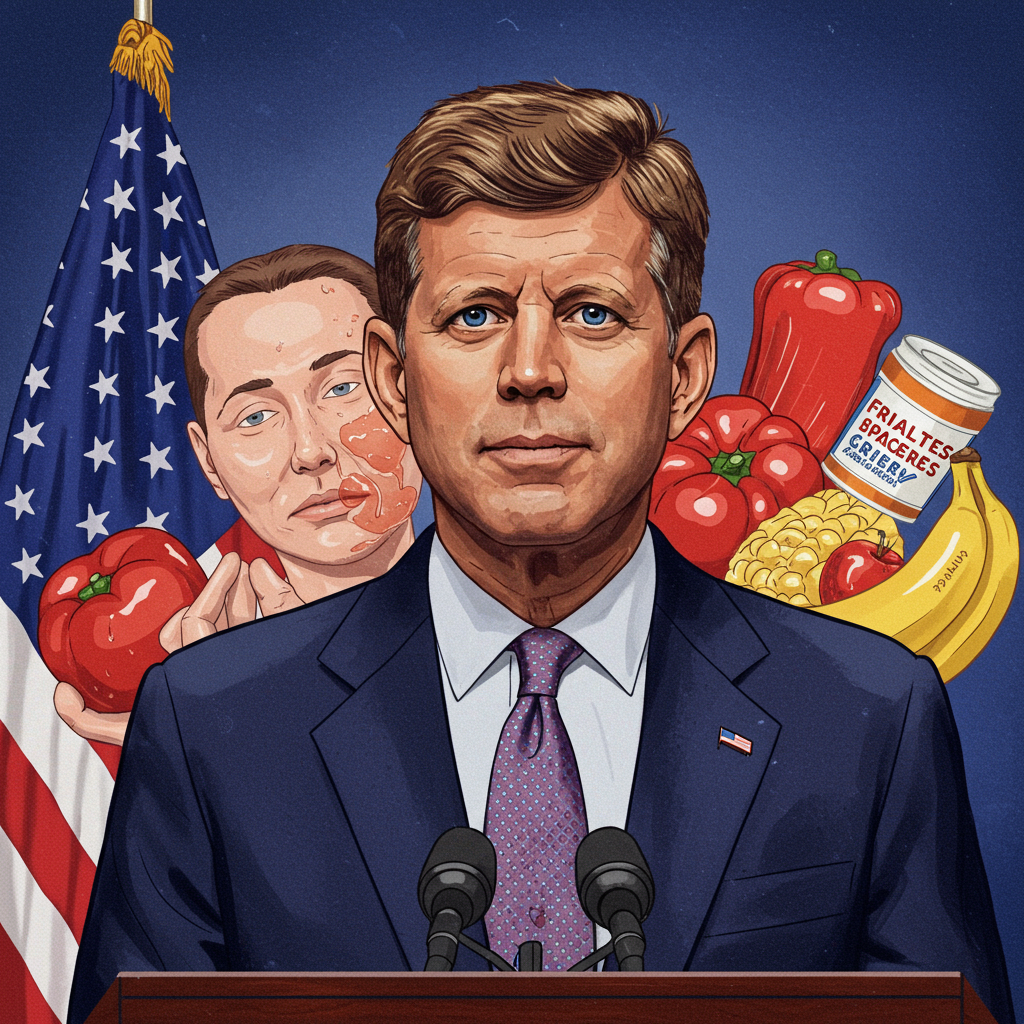The U.S. Department of Health and Human Services (HHS), under Health Secretary Robert F. Kennedy Jr., is gearing up for a significant public health push targeting the link between ultra-processed foods and the soaring rates of diabetes and chronic disease. This ambitious initiative is slated to be the inaugural wave of a national “Take Back Your Health” campaign.
Described in federal documents as “bold, edgy,” the campaign aims to be a “wake-up call to Americans,” motivating stark changes in dietary behavior. According to a notice posted seeking public relations agencies, the goal is to create “viral moments” through various platforms including social media, transit ads, billboards, and text messages, inspiring people to eat “real food.”
Millions Earmarked for Awareness
The initial phase of this health awareness campaign is projected to cost between $10 million and $20 million. It’s part of a broader, multi-year plan first reported in April 2025, which could see tens of millions invested over four years in promoting healthy eating and exercise initiatives led by HHS.
PR agencies pitching for the campaign, which faced a swift deadline of June 26, 2025, were asked for strategies focused on “daring, viral messaging” specifically designed to motivate behavior change.
Push for Tech and Wearables
A unique and notable aspect requested in the pitches is the popularization of health technology, specifically “wearables as cool, modern tools for measuring diet impact and taking control of your health.” This focus on wearable devices and data-driven personal health management is a distinct element of the planned campaign.
While government campaigns have historically encouraged healthier lifestyles – such as Michelle Obama’s “Let’s Move” initiative addressing childhood obesity – the specific and central focus on ultra-processed foods marks a departure and highlights the administration’s particular concerns about the industrialized food supply.
RFK Jr.’s Stance and Potential Conflicts
Secretary Kennedy Jr. holds a strong public stance that the U.S. industrialized food system is a “primary culprit” behind numerous chronic illnesses, stating that fixing the food supply is a top priority. This focus on promoting healthier diets appears to be a key component of his “Make America Healthy Again” (Maha) agenda, potentially finding rare bipartisan common ground in principle.
However, the initiative is not without scrutiny. Questions have been raised regarding potential conflicts of interest involving key advisers close to Secretary Kennedy Jr. Campaign documents explicitly mentioning the popularization of wearable technology coincide with the business interests of advisers like Calley Means, a senior Kennedy adviser and special government employee (SGE) focusing on food policy, and his sister, Casey Means, nominated for U.S. Surgeon General. Both have ties to companies involved in health tech and wearable devices, with Calley Means’ company helping people get wearables reimbursed and Casey Means running a healthcare startup selling such devices.
As an SGE, Calley Means has reportedly not been required to divest from his private business interests, prompting concerns from consumer advocates and an ethics complaint regarding the potential for his private interests to influence federal policy and campaigns. HHS has not publicly commented on these specific conflict questions.
Defining “Ultra-Processed” and Expert Concerns
Another potential challenge highlighted by experts is the campaign’s core target: “ultra-processed foods.” Critics, including Harvard professor of epidemiology and nutrition Walter Willett, note that the definition of “ultra-processed foods” is broad and can encompass a wide range of items, some of which (like fortified whole-grain cereals) might even offer nutritional benefits.
Willett expressed concern that the campaign proposal does not provide a clear definition for the category, despite Secretary Kennedy Jr.’s strong rhetoric. He suggests the term itself may not immediately bring to mind foods like soda, which are often considered problematic. Experts emphasize that effective public service campaigns typically rely on carefully defined targets and extensive testing to ensure messaging resonates and drives desired changes.
As the HHS prepares to launch this “bold, edgy” campaign aimed at reshaping Americans’ relationship with processed foods and tackling chronic diseases like diabetes, it navigates both the ambitious goal of improving public health and the challenges posed by potential conflicts of interest and the complexities of defining dietary targets.




